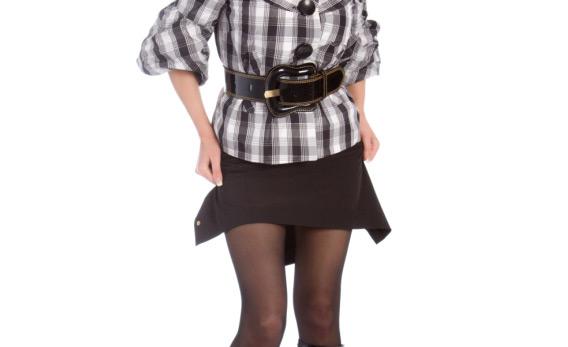Frequent Fox News guest Gretchen Hamel pantsed one of the employees of the small nonprofit company she directs, according to a Gawker report Monday.* Before the pantser’s identity was confirmed by Gawker, a colleague had written anonymously into Slate’s Dear Prudence column, saying that Hamel had intended to give the victim only “a soft tug on her skirt.” When did people start pantsing each other?
About 100 years ago. Before pantsing was pantsing, it was debagging, a common prank among students at the University of Oxford in the 1910s and 1920s. In England, baggy pants were known as bags, and at Oxford it was common to yank them down as a practical joke. The trousers lent themselves well to the prank, because of the ample material to grab onto. The Oxford English Dictionary notes that one of the first appearances of debagging appeared in 1914, in Sir Compton Mackenzie’s coming-of-age novel Sinister Street. When the character Lonsdale is overcome with resentment for Etonian and fellow Oxford student Appleby, he cries, “We ought to debag him!” The novel goes on to note that while “Appleby was thereupon debagged … he continued to walk about trouserless … without any loss of dignity,” and so “the debagging had to be written down a failure.” Scenes of debagging were common to Oxonian campus novels of the period and appeared in Alfred Budd’s The Oxford Circus: A Novel of Oxford and Youth (1923) and in Philip Gibbs’ 1920 Wounded Souls. The American Oxonian, the magazine of American Rhodes scholars studying at Oxford, lamented that the university had no single yell “except, of course, the distressing cry of ‘Debag him!’ ”
News of debagging soon crossed the pond, hanging onto the generous pant legs of the infamous “Oxford bags”—a ’20s style of much-maligned voluminous trousers that were the No.1 target of debagging. In 1925 the New York Times reported that at least one teacher even required students who wore the pants to debag themselves right in the classroom. By 1926, the vigilante crusade against the “balloon” pants was reported as widely as in an article in Wisconsin’s Sheboygan Press (“Oxford Wars on Those Fat, Fat Trousers”), and in 1927 the story in the New York Times once again was just how persistent the fat pants really were.
By the 1930s Americans were depantsing each other in the United States before settling—in many parts of the country—into the contranym pantsing. In 1930, the Illinois paper the Rockford Daily Republic reported on a Bonnie-and-Clyde-like pair of “pants bandits” who were “de-pantsing” taxicab drivers. (The phrase appeared in quotation marks, suggesting that it was still new.) The next year, California’s Riverside Daily Press reported on a battle of “pantsing” between the Polytechnic High School class of 1931 and class of 1932. The reporter suggested, rather dramatically, that “to have one’s pants taken off or ripped off is the deadliest insult an opponent could suffer,” before declaring, “It was a great night for the manufacturers of cords and shorts.” There seems to have been a surge of pantsing in the 1960s. In 1972 in the musical Grease—set in 1959—the character Roger was “pantsed” on Broadway.
While pulling your own pants down as a prank—which is to say, mooning—was already an international phenomenon by the Middle Ages, there’s little evidence of pantsing before the 20th century. The idea of getting caught with your pants down also dates to the early 20th century, and pulling another’s pants up (or giving a “wedgie”) seems to be an even more recent gesture. However, forced nudity has been used as punishment in the past: In the Middle Ages, adulterers were sometimes sentenced to appear naked in public.
Got a question about today’s news? Ask the Explainer.
Explainer thanks Ben Zimmer of the Visual Thesaurus and Vocabulary.com.
Correction, July 13, 2012: This article originally identified Gretchen Hamel as a Fox News contributor. She has no formal relationship with the network and is not paid to appear on its shows. (Return to the corrected sentence.)
